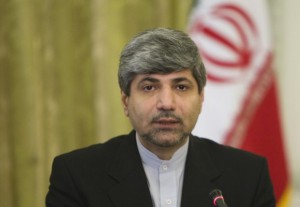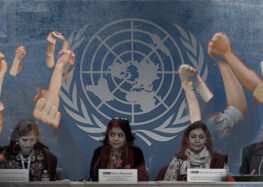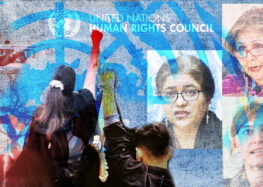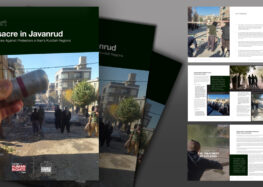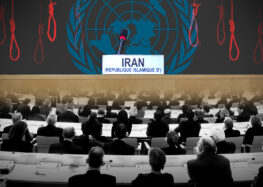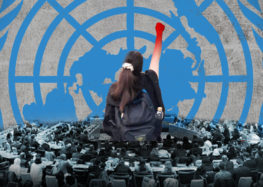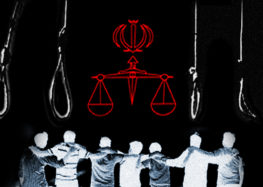Government Challenges UN Resolution As Rights Violations Continue
(1 April 2011) The Islamic Republic of Iran’s denunciation of a landmark United Nations Human Rights Council vote to appoint a human rights monitor, and leading politicians’ threats to deny the investigator access to the country, demonstrate the lack of cooperation with the international community supporting the resolution, the International Campaign for Human Rights in Iran said today.
“Iran is proving its critics’ points with its reaction, and by rejecting an offer to help bring its policies and practices in line with its legal human rights obligations, Iran is acting against the interests of its people,” said Aaron Rhodes, a spokesperson for the Campaign.
The strongly supported U.N. vote, co-sponsored by over 50 nations worldwide, has been denounced as “political” by Iranian government spokespersons. The resolution was adopted with a majority vote of 22 in favor versus only 7 votes against.
On 24 March 2011, Ramin Mehmanparast, spokesperson for the Foreign Ministry, said in a televised speech, “The passage of the anti-Iranian resolution at the U.N. Human Rights Council cannot be justified. It is politically motivated and it was approved under U.S. pressure…the objective behind this resolution was to pressure the Islamic Republic of Iran and … divert attention from human rights abuses in the West, specifically in the U.S.”
Iranian parliamentarians have gone further, demanding that the government reject cooperation with the special rapporteur. Mehr news agency reported that Alaeddein Boroujerdi, Chairman of the National Security and Foreign Policy Commission of Parliament, denounced the resolution as lacking “legal merit,” asserting, “The Islamic Republic of Iran must not accept the proposed rapporteur on the situation of human rights in our country, stipulated in this resolution.”
Iranian authorities have dismissed a detailed, documented report by U.N. Secretary General Ban Ki Moon, concerning inter alia, a surge in secret executions, which was presented to the Human Rights Council. While refusing to address the problems raised in the report, Iranian diplomats in Geneva insisted that the Human Rights Council’s resolution was an effort to divert attention from human rights violations in the United States.
The Iranian Judiciary announced the reinstatement of 20-year prison sentences for seven leaders of the Baha’i Faith, which had been reduced to 10 by an appeals court. The decision was reportedly made as the result of a challenge by Iran’s Prosecutor General on the basis of a rule that any judicial decision may be appealed if it contradicts Sharia law. In February 2010, during Iran’s examination by the U.N. Universal Periodic Review Working Group, top Iranian human rights official Mohammad-Javad Larijani claimed, “No Baha’i in Iran is prosecuted because he is a Baha’i…”
On 31 March, government agents, reportedly numbering in the hundreds, arbitrarily arrested an undetermined number of people at the funeral of Mir Esmail Mousavi, the father of opposition leader Mir Hossein Mousavi. Mir Hossein Mousavi, who has been under “house arrest” since February and has, along with his wife Dr. Zahra Rahnavard, been held in unknown places for portions of the intervening time, was prevented from attending the funeral, which was severely disrupted by security officials. Some of those arrested remain in custody.
The International Campaign for Human Rights in Iran urges Iranian authorities to cooperate fully with the special rapporteur when he or she is appointed. The Campaign urges Iranian authorities to extend an invitation and to grant visas to the special rapporteur, and to facilitate free access to prisons, detention centers, and to all citizens. The Campaign will support, in any way within its means, the work of the rapporteur.

